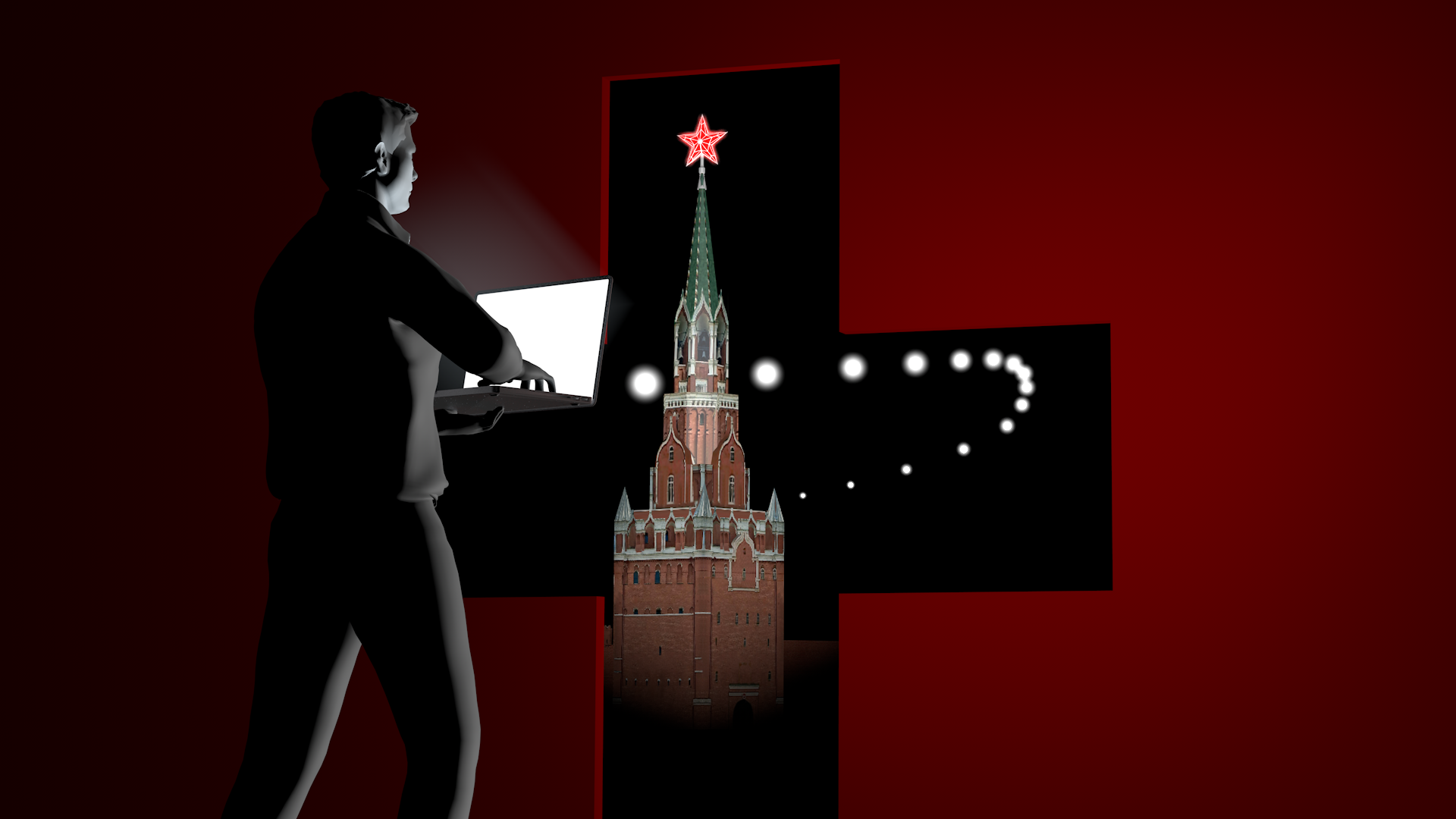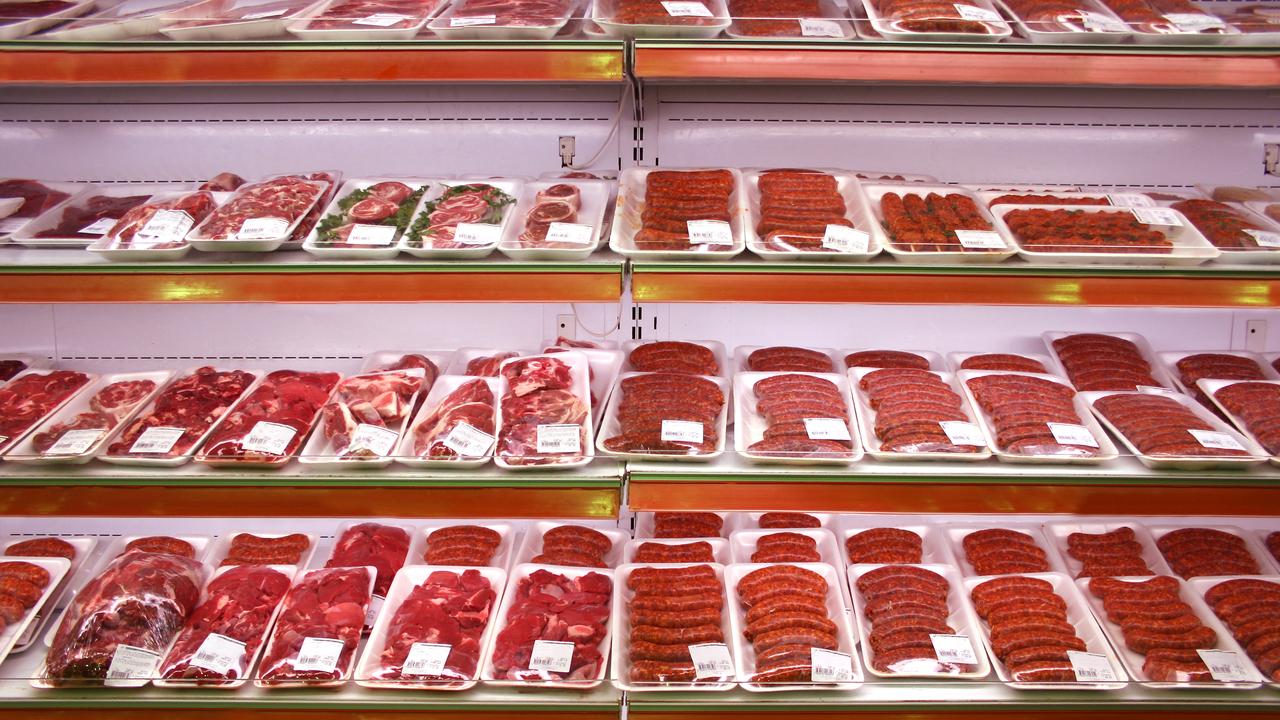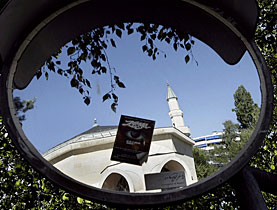Divisive minaret ban faces voters’ verdict

Voters have the final say on Sunday on a proposal by members of rightwing and ultra-conservative groups to outlaw the construction of minarets in Switzerland.
The ballot puts the Swiss policy on religious minorities and integration of immigrants under the spotlight. But the highly divisive plan has limited chances of winning a majority, according to experts.
The government and most political parties as well as churches and the business community have come out strongly against a proposed ban.
“The initiative is a kind of ‘proxy war’. Its supporters say they are against minarets. But they want to fight what they consider creeping Islamicisation and sharia law;” said Justice Minister Eveline Widmer-Schlumpf.
Opponents also warn that approval of the proposal would fuel Islamic extremism and damage Switzerland’s image abroad, particularly in the Muslim world.
However, supporters of a ban argue minarets are a symbol of an Islamic claim to power.
“The Islamic religion is intolerant, but we do not want to limit freedom of religion, we want to outlaw the political symbol,” says Ulrich Schlüer, a member of the rightwing Swiss People’s party and one of the leading promoters of the anti-minaret initiative.
The group says it is time to act now before Christian values are undermined and violence flares in Muslim ghettoes as in neighbouring European states.
The promoters claim there is public concern about the growing Muslim community in Switzerland, radical imams, the role of women, as well as head scarves and other dress codes.
Immigrants
The number of Muslim immigrants has increased to about 350,000 (up to 4.5 per cent of the Swiss population) since the 1990s. Most of them came from the former Yugoslavia and Turkey and are considered moderates.
There are an estimated 200 mosques and prayer rooms in Switzerland, mainly in disused factories and warehouses. Only four of them have a minaret, including the mosques in Geneva and Zurich.
In the wake of heated debates at a local level about requests to build more minarets, members of the People’s Party and the Federal Democratic Union collected enough signatures to force a nationwide vote.
The campaign in the run-up to the vote on Sunday was marked by a provocative poster campaign which was criticised as racist by non-governmental organisations and international bodies.
“The supporters succeeded in forcing a broader debate about integration of Muslims in Swiss society,” said political scientist Claude Longchamp.
An opinion poll by his gfs.berne research institute two weeks ahead of the ballot found the margin between opponents and supporters narrowing. Nevertheless a majority of potential voters still rejected a minaret ban.
Given that the issue is one that generates strong feeling on either side, turnout is expected to be above average – around 50 per cent.
Weapons export
Alongside the anti-minaret initiative, voters will also decide on a separate proposal by an alliance of peace groups and centre-left political parties to ban the export of weapons and other war materiel.
It is the third time in nearly 40 years that pacifists have sought to win a majority for their cause.
The pacifists, including the Group for a Switzerland without an Army, argue that arms exports are incompatible with Switzerland’s foreign policy aims and traditional neutrality.
The government and most political parties have warned the initiative would cost thousands of jobs and weaken Switzerland’s defence capabilities.
The initiative has no realistic chance of winning approval at the ballot box, but observers note that the campaign has appealed to young citizens and to women in particular.
Urs Geiser, swissinfo.ch

More
People’s initiative
Some five million citizens, including registered Swiss abroad, are eligible to take part in the ballots on Sunday.
Votes and elections are also taking place in many of the country’s 26 cantons, as well as on a local level, on a variety of issues.
As a rule nationwide votes take place four times a year.
The local and cantonal ballots include:
-In Obwalden: plans for preferential building zones for wealthy foreigners
-In Valais: a reform of the funding system for tourism
-In Bern: lowering the age limit for voters from 18 to 16
-In Basel Country: membership in an inter-cantonal regulation to combat hooliganism
-In canton Vaud: granting an unlimited licence for a nuclear power plant.
Besides the two highly controversial ballots on minarets and weapons exports voters will also have the final say on a modified tax on kerosene.
The government and parliament want to use most of the revenue from a fuel tax on domestic flights for aviation safety and environmental measures.
At the moment the money – SFr40 million ($40 million) annually – is spent on road projects.
Supporters say the country’s 11 regional airports would benefit from the proposed change in the constitution.
Opponents argued international flights out of Switzerland should also be subject to the proposed tax reform.

In compliance with the JTI standards
More: SWI swissinfo.ch certified by the Journalism Trust Initiative















You can find an overview of ongoing debates with our journalists here . Please join us!
If you want to start a conversation about a topic raised in this article or want to report factual errors, email us at english@swissinfo.ch.